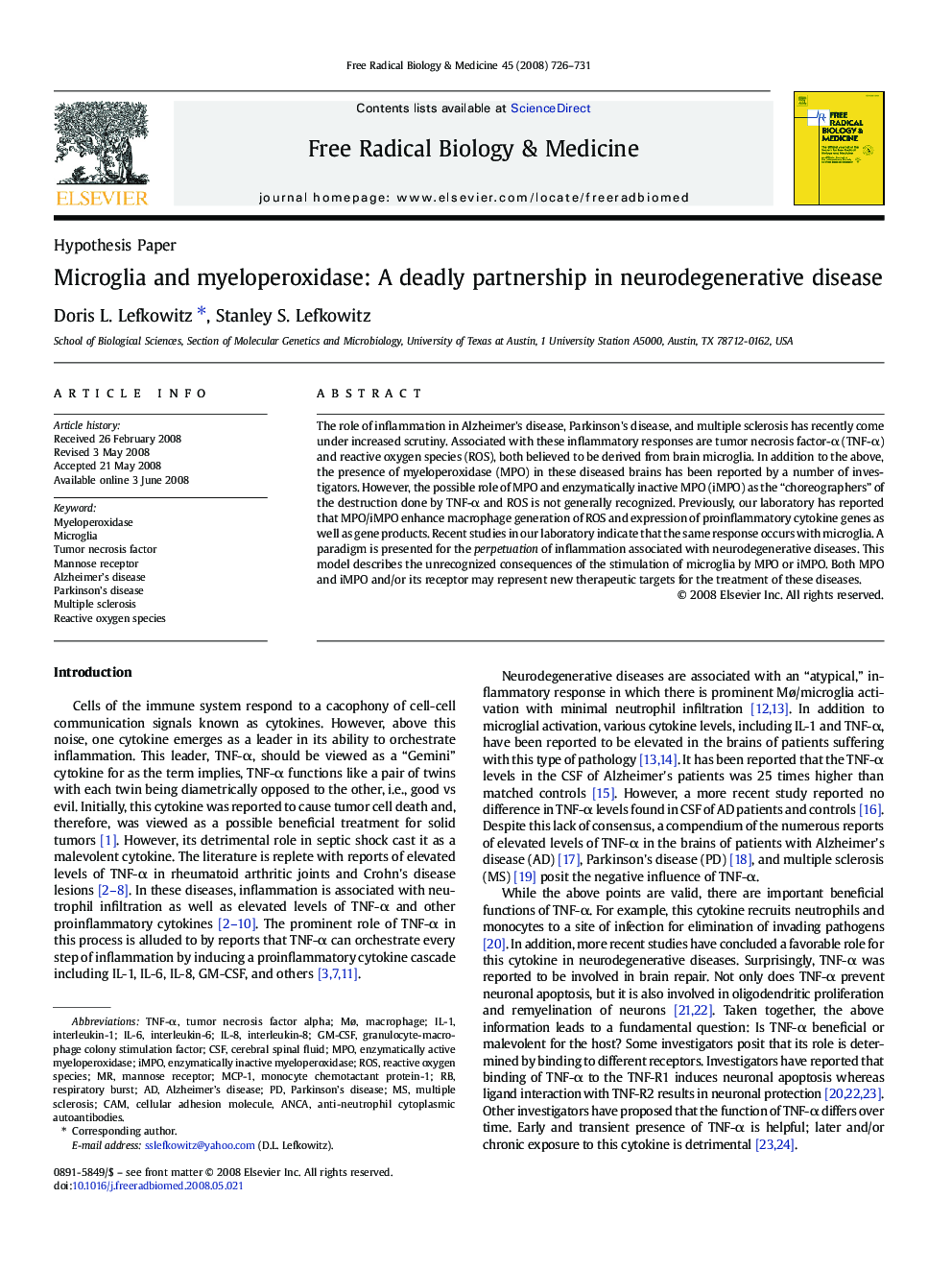| Article ID | Journal | Published Year | Pages | File Type |
|---|---|---|---|---|
| 1910851 | Free Radical Biology and Medicine | 2008 | 6 Pages |
The role of inflammation in Alzheimer's disease, Parkinson's disease, and multiple sclerosis has recently come under increased scrutiny. Associated with these inflammatory responses are tumor necrosis factor-α (TNF-α) and reactive oxygen species (ROS), both believed to be derived from brain microglia. In addition to the above, the presence of myeloperoxidase (MPO) in these diseased brains has been reported by a number of investigators. However, the possible role of MPO and enzymatically inactive MPO (iMPO) as the “choreographers” of the destruction done by TNF-α and ROS is not generally recognized. Previously, our laboratory has reported that MPO/iMPO enhance macrophage generation of ROS and expression of proinflammatory cytokine genes as well as gene products. Recent studies in our laboratory indicate that the same response occurs with microglia. A paradigm is presented for the perpetuation of inflammation associated with neurodegenerative diseases. This model describes the unrecognized consequences of the stimulation of microglia by MPO or iMPO. Both MPO and iMPO and/or its receptor may represent new therapeutic targets for the treatment of these diseases.
